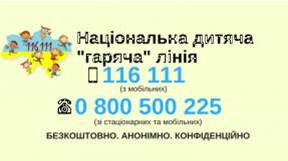Англійська мова.
Reading in our life
Objectives of the lesson:
- to revise the vocabulary on the topic “Reading. Writers. Books”;
- to practice listening, writing and speaking on the topic;
-to practice students’ skills in monologue speaking;
- to extend their knowledge about books and writers;
-to teach students to work in groups;
- to develop students’ creative skills, their ability to express thoughts logically;
- to develop students’ outlook;
- to educate students to respect the cultural heritage.
Equipment: text-book “English” form 8, Karpiuk O., handouts, multimedia presentation “Reading in our life ” , video “Why read? ” from “You tube”, crossword “Libraries and books” from “BBC learning English”, portraits of the famous writers, illustrations from famous English books.
Lesson procedure
І. Introduction (3 min)
Teacher organizes students for the lesson, for communication in English. Students have to say what are their expectations of the lesson
II. Warming up (5 min)
Discussion of quotations about reading.
Students will be able to discuss quotations, to agree or disagree with them and to express their opinions.
“Reading is to the mind what exercise is to the body”
“A room without books is a body without soul”
“Tell me what you read and I will tell you what you are”
“Books and friends should be few but good”
Teacher can use HO №1 which includes useful phrases for expressing opinions.
III. Watching video “Why read?” (15 min) http://www.youtube.com/watch?v=xThol-ydwco
a). Pre-watching activity
Brainstorming
Genres of books.
Types of publscations
Students have to write down the genres of books and the types of publications. Then the teacher proposes students to answer some questions:
- Which types of books and publications can be found on the shelves of your room?
- Which of them do you use very often (seldom)?
- Which of them are the most helpful for you?
b). While-watching activity
Students have to write down the names of the publications mentioned in the video.
с). Post-watching activity.
- True/false activity
1. Technology has given us books on tips.
2. You can find any information in the Internet.
3. Great literature can take you to far away countries.
4. Reading can’t help us to educate ourselves.
5. Reading doesn’t help our imagination to take shape.
6. Things are better understood when you read them for yourself.
7. Pictures always tell the story better than the words ever could.
1. True 2. True 3. True 4. False 5. False 6. True 7. False
- Then the teacher proposes students to answer the question “Why do we read?” Students have to express their opinions.
IV. Speaking (5 min)
Teacher asks some questions to the students:
- Can you tell who writes books for us?
- What famous English writers do you know?
After that students are expected to tell what do they know about English writers.
V. Matching activity (5 min)
Students work with the textbooks ( exercise 6, page 47). Students have to match the names of the famous writers to the paragraphs about them.
VI. Solving the crossword “ Libraries and books” (5 min)
(http://www.bbc.co.uk/worldservice/learningenglish/quizzes/crossword/110225_croswword_libraries.shtml
Teacher asks students where do they read books and what do they know about books. Then they solve the crossword. Students will be able to revise the vocabulary on the topic of the lesson.
VII. Group work. “The best book” (5 min)
Students have to make a presentation of the book. This task is for group work. Every group is an advertising company. The teacher proposes them to choose one of the five pictures of the books (HO №2), to explain why it is the best and to make a poster. When the presentation is ready the speaker of the group presents the work.
VIII. Home task (1 min)
Students write the golden rules about reading.
IX. Conclusions (1 min)
Students analyze if their expectations of the lesson came true.
HO №1
- I agree with these statements because…
- In my opinion it’s true because…
- I think it’s true because…





